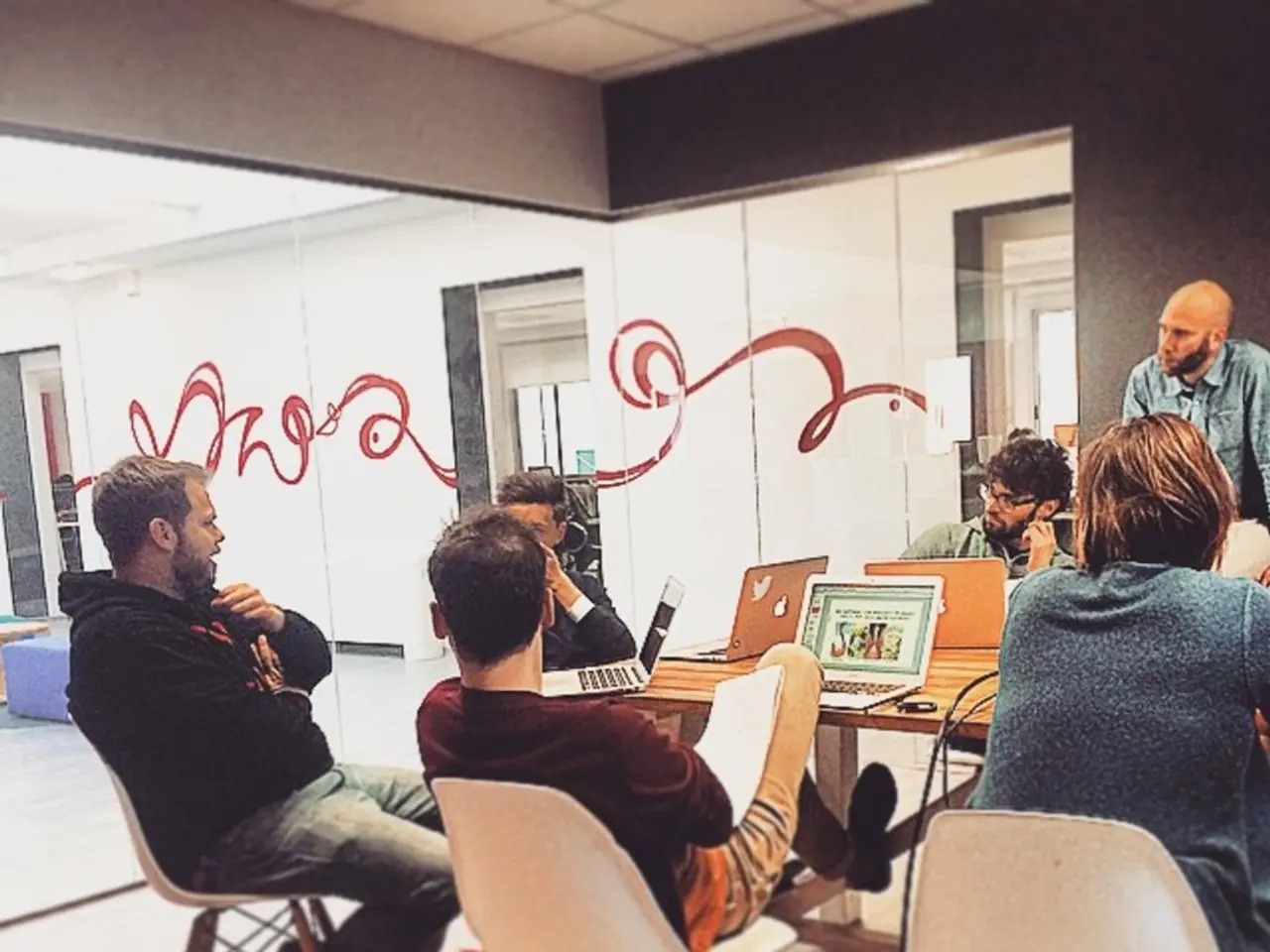Workplace Transformations: Identifying Careers Affected by AI
Artificial Intelligence (AI) is transforming the landscape of various professions, with its applicability particularly high in knowledge work and communication-heavy roles. According to recent findings in 2025, AI is making significant inroads in industries by automating repetitive or data-driven tasks, such as interpreters, translators, writers, customer service representatives, sales roles, and some teaching tasks [3][4].
However, craftsmanship and care-oriented jobs, such as massage therapists, construction laborers, roofers, and other roles requiring physical dexterity, on-site expertise, and direct human care, remain largely AI-resistant [4]. In healthcare, AI augments rather than replaces professionals by assisting diagnostics, managing patient records, and suggesting treatment options, allowing practitioners to focus more on empathetic patient care, an aspect that AI cannot replicate [2].
Similar trends apply to the education and legal sectors, where AI supports administrative tasks but does not replace the human expertise and interpersonal elements critical to these roles [1][2]. The integration of AI increases operational efficiency, reduces costs, and speeds up workflows in sectors like finance (fraud detection, risk assessment), manufacturing (predictive maintenance, robotics), logistics (supply chain optimization, autonomous delivery), and retail (personalized recommendations, dynamic pricing) [1][2].
AI also creates new job opportunities, both in AI-related fields and in roles that leverage AI tools for higher-level reasoning and decision making [2][3]. The potential growth contribution for the German manufacturing industry from AI is estimated at 7.8 percent, around €56 billion [6]. McKinsey predicts global annual revenue of up to $4.4 trillion from generative AI alone [7].
However, the adoption of AI in the workplace also presents challenges. Automation threatens roles centered on manual, repetitive, or routine digital tasks, putting those workers at risk of job displacement [5]. Despite fears, research suggests AI changes work content rather than fully replacing jobs, often requiring humans to upskill and adapt rather than become unemployed [3]. Managing the transition requires large-scale workforce retraining and education initiatives to equip workers with skills in AI collaboration, data analysis, and creative problem solving [5].
Ethical concerns, data privacy, and the potential for increased inequality remain socio-economic challenges accompanying AI proliferation [1]. Professionals in highly affected jobs must consider upskilling to AI-complementary roles to thrive in the evolving workplace. People also expect significant changes in education, creative industries, media/communication, and HR [8].
Representative surveys of employees' perceptions of AI's influence show that 62 percent of respondents expected changes in the financial sector, 60 percent saw IT and software professions affected, as did 56 percent in manufacturing, production, and retail [9]. The professions most affected by AI include interpreters, historians, flight attendants, sales representatives, authors, and customer service representatives [10].
Despite these changes, some professions remain resistant to AI, such as nurses, truck drivers, construction workers, and masseurs. A robot masseur or a ChatGPT construction manager remain purely hypothetical for now [11]. As AI continues to evolve, it is crucial for individuals and organizations to navigate this shift with a focus on upskilling, retraining, and ethical considerations.





